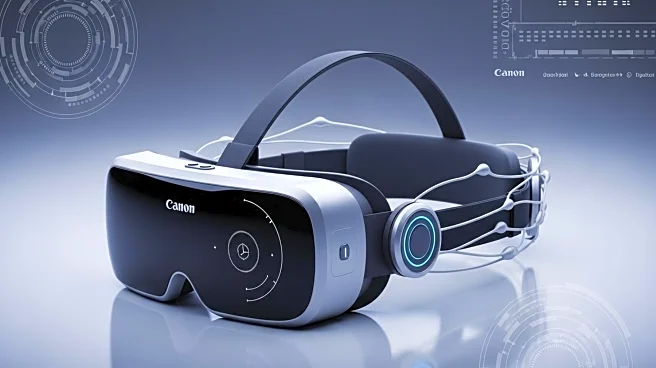What's Happening?
Meta has launched the Meta Ray-Ban Display, a new augmented reality (AR) smart glasses product, priced at $799. The glasses are paired with a Neural Band wrist controller, enabling gesture and AI features. The launch, which took place on September 30, 2025, marks a significant move from concept to retail for display-driven AR technology. The product is initially available for retail demos at select U.S. stores such as Best Buy and LensCrafters, with online purchases being limited. This rollout is expected to test consumer interest in screen-driven AR, with early buyers influencing app support, accessory markets, and public reaction. Analysts predict strong shipment growth for mixed models in the AR/VR market, despite the demo-first rollout potentially constraining initial numbers.
Why It's Important?
The introduction of the Meta Ray-Ban Display is poised to reshape the AR wearable market by setting a new standard for consumer entry points with its $799 price tag. The device's features, including gesture controls and AI capabilities, could accelerate the development of third-party apps and prompt privacy debates. High early demand, as indicated by appointment-only demos and fast sellouts, suggests significant consumer interest. This launch may pressure competitors to develop more affordable or screen-free options, potentially leading to rapid innovation in the AR space. The product's success could influence app developers and phone makers to adapt interfaces for a glance-forward world, impacting how users interact with technology.
What's Next?
As Meta's new AR glasses enter the market, industry stakeholders will closely monitor shipment and demo-to-purchase conversion rates. The product's success could lead to increased competition among rivals, prompting them to accelerate the development of cheaper alternatives or improve battery life. App developers may begin experimenting with new interfaces tailored to hands-free alerts and instant contextual AI, potentially reshaping user habits by the end of 2025. Privacy concerns may also arise, leading to discussions on renewed privacy rules. The broader market's response to these glasses will be crucial in determining the future trajectory of AR technology.
Beyond the Headlines
The launch of Meta's AR glasses raises questions about the ethical implications of integrating AI and gesture controls into everyday technology. Privacy concerns are likely to be a significant topic of discussion, as the glasses' capabilities could lead to increased data collection and surveillance. Additionally, the product's impact on social interactions and cultural norms may be profound, as users adapt to new ways of engaging with digital content. Long-term shifts in consumer behavior and technology adoption could result from this development, influencing how society interacts with augmented reality.










